US Says Will Not Back Off In Syria Despite Iran-Backed Attacks
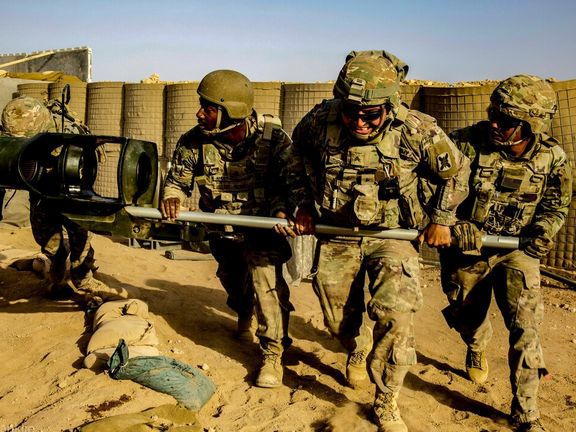
The United States will not back away from its deployment to Syria, despite attacks on its forces there last week by Iran-backed militia, the White House said Monday.

The United States will not back away from its deployment to Syria, despite attacks on its forces there last week by Iran-backed militia, the White House said Monday.
A one-way attack drone struck a US base in Syria on March 23, killing an American contractor, injuring another and wounding five US troops.
That triggered US retaliatory air strikes and exchanges of fire that a Syrian war monitoring group said killed 19 Syrian and pro-Iranian forces.
White House National Security Council spokesperson John Kirby said he was not aware of any additional attacks over the past 36 hours but cautioned, "We're going to stay vigilant."
Kirby also referred to President Joe Biden's remarks on Friday, when he warned Iran that the United States would act forcefully to protect Americans.
"There's been no change in the US footprint in Syria as a result of what happened the last few days," Kirby said.
"We're not going to be deterred … by these attacks from these militant groups."
Syria's foreign ministry on Sunday condemned US strikes, saying Washington had lied about what was targeted and pledging to "end the American occupation" of its territory.
Iran's foreign ministry also condemned the strikes, accusing US forces of targeting "civilian sites."
US forces first deployed into Syria during the Obama administration's campaign against Islamic State, partnering with a Kurdish-led group called the Syrian Democratic Forces. There are about 900 US troops in Syria.
Prior to the latest spate of attacks, US troops had been attacked by Iranian-backed groups about 78 times since the beginning of 2021, according to the US military.
Reporting by Reuters
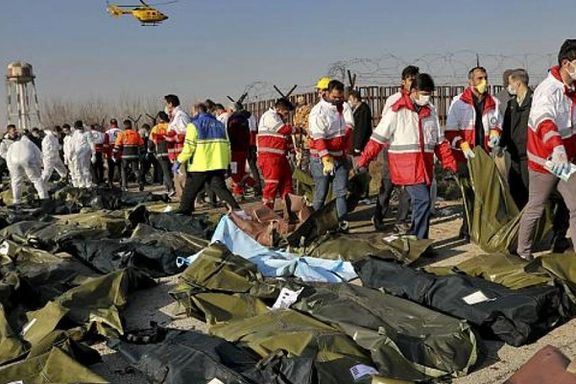
Iran’s former presidential chief of staff says after the downing of a Ukrainian airliner in 2020, the President was not told it was shot down by IRGC missiles.
Mahmoud Vaezi told Mashreq news in Tehran on Monday that “the night when we were informed the Americans had killed Qassem Soleimani in Iraq it was a very tough time. Then the downing of the Ukrainian plane was so hard to bear.”
Flight PS 752 was hit with two surface-to-air missiles as it was taking off from Tehran on January 8, 2020, in the tense aftermath of Iran's missile attack on United States military bases in Iraq. The missile attack on US bases was in retaliation for the US killing of Iranian general Qassem Soleimani in Baghdad days earlier.
Vaezi went on to say that President Hassan Rouhani, Foreign Minister Mohammad Javad Zarif and other senior presidential aides were not initially told that the plane was shot down.
All 176 people onboard died in the incident, many dual-national Canadians, the Ukrainian pilots and crew, British citizens and others.
Iran first said that the crash was an accident but after video emerged showing projectiles hitting the plane and remarks by the United States and Canada that they had evidence of anti-aircraft missiles having been fired at the aircraft, the Revolutionary Guard (IRGC) admitted three days later that it was responsible for shooting down the airliner, resulting from “human error.”
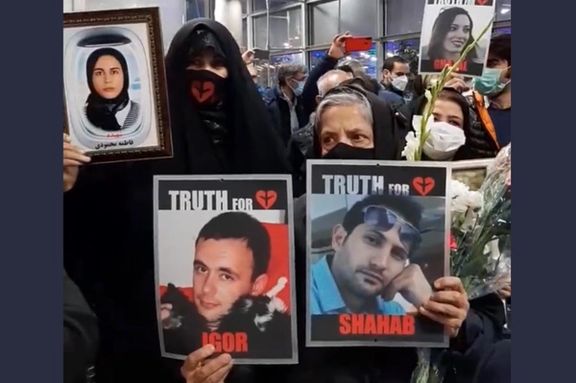
“At that time, President Rouhani insisted on making a statement as soon as possible to tell the people everything,” he added, but before that “Rouhani, Foreign Minister Zarif and Roads Minister Mohammad Eslami did not know what had really happened.”
He went on to say that after news outlets abroad reported it was not an accident and the plane was shot down, the Rouhani administration followed up but they [the IRGC] denied, and “finally we found out the truth, but we were having a hard time.”
One day after the incident, President Rouhani’s spokesman denied that the airliner was shot down.
"All these reports are a psychological warfare against Iran...all those countries whose citizens were onboard the plane can send representatives and we urge Boeing to send its representative to join the process of investigating the black box," Ali Rabiei said in a statement.
However, Iran never allowed investigators to visit the country or interview any officials. After months of delay, Tehran passed on the flight data recorder to France for analysis, but no new information emerged. The issue was not how the plane had crashed but to find out who had issued the order to fire at the airplane.
In the three years since the tragedy, the families of the victims have explored multiple avenues to get answers from Iran, including taking the unusual step last year of filing a case in the International Criminal Court.
A sham trail of a few low-ranking military men was held in Tehran but victim families who attended a few court sessions dismissed the exercise as futile in uncovering the truth about which high-ranking officials were responsible.

An ultra-hardliner has said that women could be fined as much as $60,000 for flouting hijab when a new law to enforce the Islamic dress code is passed by parliament.
Speaking to the press in his constituency in Yazd Province, Hojjat ol-Eslam Hossein Jalali said Sunday that punishments for flouting the hijab, according to the planned legislation, will include cash fines from 5m to 30b rials (around $100 to $60,000) and that other penalties may include revocation of drivers’ licenses and passports, or a ban on the use of the internet for celebrities and social media influencers and bloggers.
These penalties will apply to passengers who do not abide by the hijab rules while riding in vehicles, at restaurants, government organizations, schools and universities, airports and public transport terminals, in the cyberspace and to celebrities, and on the streets and other public arenas, Jalali added.
Hardliners have been looking for ways to strengthen the enforcement of hijab after their ‘morality police’ tactic of arresting women for “improper hijab” backfired with the death of Mahsa Amini last September, triggering nationwide popular protests.
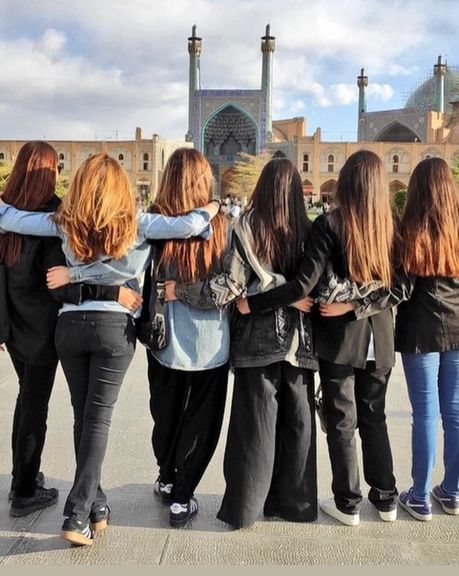
Detainees were usually released after paying rather smaller cash fines but could also face prison and lashes if they had a previous record. Activism against the compulsory hijab could also bear serious consequences including prosecution and imprisonment.
The morality police has largely disappeared from the streets since Amini’s death in September and the resulting protests as authorities feared enraging people.
Four decades after the Islamic Republic forced women to wear headscarves, long tunics and trousers, or the long black veil called chador, women are increasingly appearing in public, even in many smaller and more traditional areas of the country, in regular clothing such as colorful dresses and with no headscarf covering their hair.
Young girl skating and dancing ‘hijabless’ at a park in western Tehran recently.
Many women say on social media that there is no way they will go back to dressing according to the government mandated dress code.
The plan, Jalali said, was finalized after “300 meetings with the Supreme Council of Cultural Revolution and the National Security Council”. In December, amid nationwide protests, Jalali had said that thirty-seven different government organizations that were responsible for implementation of the existing hijab law had all received the relevant instructions to enforce it.
The government should submit the plan to the parliament in the form of a bill within the next couple of weeks, Jalali said of the envisaged plan which has been “brought to the attention of” the Supreme Leader Ali Khamenei and the Judiciary, implying their agreement with the new plan had been obtained.
Vida Movahed protesting against compulsory hijab in December 2017 at a busy streets in Tehran.
The new law, if passed, would exclude any “physical encounter” with women, Jalali said. He was apparently referring to plans to use CCTV cameras and facial recognition technology to identify women who flout the hijab, and use cash fines and social restrictions to punish them, instead of using the infamous morality police patrols on the street to issue warnings or make arrests.
The plans to eliminate physical confrontation were first revealed by the secretary of the Headquarters for Promoting Virtue and Preventing Vice, Mohammad-Saleh Hashemi-Golpayegani.
He said at the time that CCTV footage from public places such as streets and public transport and facial recognition software would be used to enforce the hijab.
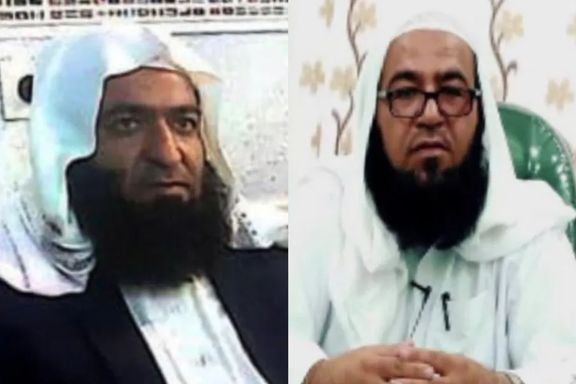
Fears are growing for two teachers and activists in Iran’s Sistan and Baluchistan province who have not been seen for 40 days.
Brothers Reza and Abdulrauf Rakhshani, prominent teachers at a Sunni religious school in Zahedan, went missing after what is believed to have been a regime backed forced disappearance.
According to reports from local publication Halvash, the two brothers were arrested by the security forces in Zahedan on February 15 and despite the follow-up of their family, the judicial and security authorities have not yet commented on their condition.
The report claims that the arrest of the two brothers is aimed at "putting more pressure on Mowlavi Abdolhamid, the Sunni Imam of Makki Mosque of Zahedan”.
Civil activists in Sistan and Baluchistan, home to a Baluch majority, have previously reported that during the protests of the last six months a large number of citizens, including children under the age of 18, have been arrested with no charge against them.
There is no accurate information about the situation of many of them due to the disruption of the internet in many areas of the southeastern province.
At least 69 Afghan students who were studying at a religious school in Zahedan, were arrested by the security forces and transferred to a camp on February 13 after having been forced to confess to participating in Zahedan’s weekly protests.
The Sunni city of Zahedan in the southeastern Sistan-Baluchestan province has been witnessing protests against repressions and discriminations in the province following mass Friday prayers during the past 25 weeks.
The Sunni Baluch population have taken to the streets in Zahedan every Friday after prayers since September 30 when government forces cracked down on protesters and killed tens of protesters, known as Bloody Friday. Protests began after the death of Mahsa Amini in ‘hijab police’ custody in mid-September.
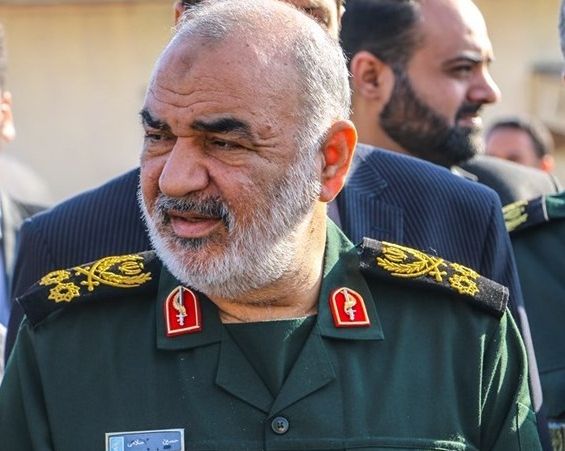
A group of Iranian-French lawyers are preparing to file a complaint against the Commander of Iran's Revolutionary Guard Corps, Hossein Salami, in France.
Le Monde reported on Monday that the lawyers, led by Chirinne Ardakani, hope to bring to trial those responsible for crimes committed against Iranian protesters.
For the past six months, the 31-year-old Franco-Iranian Ardakani has been actively participating in the uprising of the Iranian people for their freedom, the idea of forming the group becoming apparent after the murder of Mahsa Amini at the hands of morality police.
Known as the Collectif Iran Justice, a "legal task force" consisting of around 15 lawyers, jurists, and translators, the group is preparing to file a complaint with the Paris prosecutor's office against Hossein Salami.
The head of the Revolutionary Guards and author of death threats against the pro-democracy diaspora, which the legal team claims amounts to an unofficial fatwa, should not go unpunished.
Ardakani has so far managed to win the backing of 100 members of parliament in France to support the protesters who have been sentenced to death in Iran.
At the end of March, she is going to give a speech at the United Nations Human Rights Council about the suppression of protesters by the Islamic Republic.
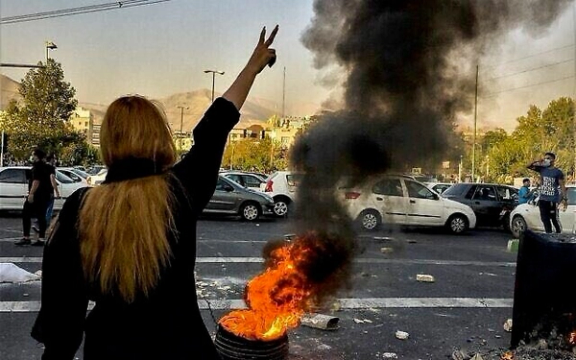
Some observers in Iran say that the society has been "radicalized" because of recent protests which were the product of the authoritarian political system.
In an interview with the reformist daily Shargh, sociologist Maghsud Farasatkhah said that the government needs to find answers to a set of urgent national problems including water shortage, capital flight, emigration of human resources, increase in poverty, diminishing economic stability, gender, ethnic and social inequality, and so on.
"But currently, the government has reduced politics to the unilateral omission of 'others' to reinforce its political power," he said, adding that ignoring the need for dialogue has led all politics into an impasse.
Farasatkhah added that a ruling class should come to power by trying to satisfy the aspirations of the people, but this is ignored in Iran, as all decisions are made by an elite whose relations with the rest of the society can be defined as "patriarchal."
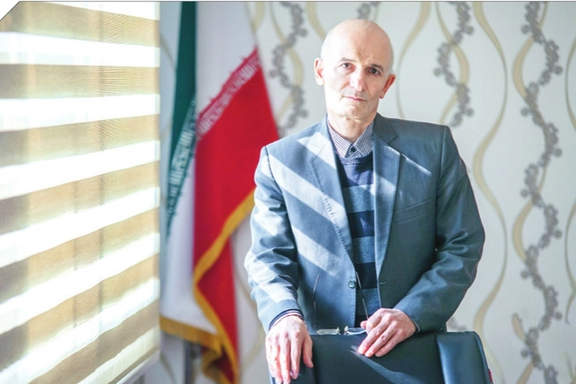
By the word "elite," Farasatkhah means a group of non-elected politicians loyal to Supreme Leader Ali Khamenei, or those who have been elected to positions through a system of biased candidate vetting that merely serves the leader's interests.
According to Farasatkhah, this elite operates via non-transparent and non-accountable institutions in which there are no checks and balances. This will inevitably bring about a conflict between rulers and society. Examples of this are disagreements between the government and the people, such as compulsory hijab. What is prohibited by the government is permissible in the eyes of the nation. The same duality and conflict also exist in many other areas such as the unrestricted access to the Internet, sports, art, education, and so on.
The unrepresentative elite tries to force its views on the people and deny them personal and political freedoms.
In such a situation, when the people are not allowed to take part in politics, they turn into masses, and masses sometimes act as populist politicians and propagandists want them to act. Farasatkhah said that the society currently acts like a mass which is easily overwhelmed by events in Iran and the world. Any incident can potentially upturn the situation, and this is a cause for concern. "I am worried about the future and stability of the society as eventually the people will be the losers in the chain of events.
Farasatkhah said that the way out of this situation is turn the masses back into a society in which vocational, civil, local, and public institutions could be activated to empower the society, make it rational and rob the populists of their leverage.
However, many dissidents and critics might label Farasatkha’s recommendations as wishful thinking within the ideology and structure of the current regime. Nice ideas have been around in Iran for decades, but the regime has prevented all reforms.
In another interview in the same issue of Shargh, Expediency Council member and a long-time regime insider, Majid Ansari said he can see signs that a part of the government has noticed the threats and understood the need for a review of current policies. Ansari is concerned about the threats but is willing to offer his way out of the problem.
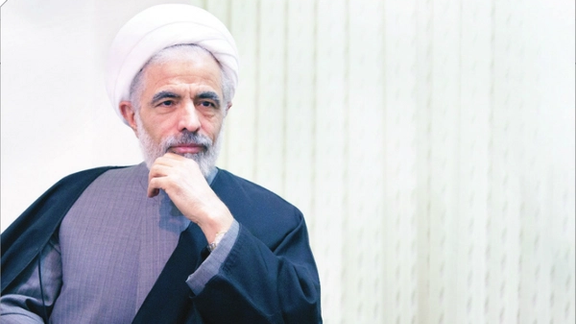
Ansari, an aide to the de facto leader of ‘reformists’ in Iran, former President Mohammad Khatami, said that current protests has put regime politicians and political groups in all factions to test. He acknowledged the people's disillusionment about the factions but still believes that there are still ways to restore people's trust in political groups and even the government.
Iranian protesters have been saying that there is no big difference between the hardliner and reformist factions of the regime and they do not believe in that dichotomy any longer. Regime change, they say, is the only way to resolve the many crises Iran faces.
Ansari also acknowledged that the all-conservative government in Iran has led to "a relative political impasse," but he believes that admitting the mistakes made during the past years and using collective wisdom to make things right will put the nation back on the right track.
However, he did not say why Iran was not able to get on the right track in 44 years since the establishment of the Islamic Republic.
Ansari's solution is mainly based on holding free and fair elections, but doing so requires changes to the constitution or the combination of institutions linked to Khamenei, including the Guardian Council, and it is not clear who can bring Khamenei to terms with the idea of change as in his latest speech on March 21, he ruled out any change in the constitution and attributed the idea of change to "the enemies."